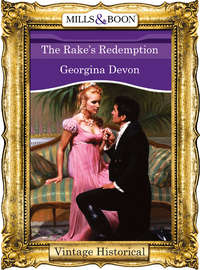
Полная версия
Regency High Society Vol 4: The Sparhawk Bride / The Rogue's Seduction / Sparhawk's Angel / The Proper Wife
The first time he’d been wary, wondering if this was another ploy to throw him off his guard, but her exhaustion and despair were real enough. For all her spirit he had to remind himself that she was gently bred, and grieving, too, over what she’d lost. He also told himself he wasn’t being protective, only practical. He couldn’t afford to have her fall seriously ill while they traveled. Perhaps he would be pushing her too hard to try to make Seabrook by week’s end.
Yet as Jerusa rode the little mare behind Michel’s gelding, it was her heart that felt the most pain, not her body. Oh, her head still ached from the chloroform and every muscle in her back and her legs protested over being curled across the unaccustomed sidesaddle, but all that was nothing compared to the shame of what she’d let happen in the barn.
Michel Géricault had been right, absolutely, appallingly right: he hadn’t forced her to do anything. She’d stood as still as if she’d been carved from marble and let herself be drawn into the lazy, seductive spell he’d cast with his voice and eyes alone. Without flinching she had let him cut her free from her wedding gown and trace his hand along her spine with a familiarity that should have belonged to her husband, not her kidnapper. Without a murmur of protest, she had followed his lead, and obediently—even eagerly—recited his French name, as if it were only one more incantation in his unearthly litany.
She hadn’t fought and she hadn’t tried to escape beyond the single, pointless attempt. She hadn’t even boxed his ears the way she’d done to other young men who hadn’t dared half as much. And with her compliance she had betrayed not only Tom but her family’s honor, as well.
She stared numbly at the Frenchman’s back before her, the broad shoulders that tapered to a narrow waist and the dull gold of his queue, gleaming in the moonlight against his dark blue coat. If he had been just one more handsome man flirting with her, she could have tossed her head and walked away. She should have done it already, for every step the little mare took was another away from Newport.
She glanced back over her shoulder in the direction they’d come, and her fingers twisted nervously in the worn leather of her reins. She could do it. He didn’t have her bound or tied to the saddle. She’d simply have to pick her best chance, that was all. Eventually they’d have to meet with other people, and then she’d be gone in an instant.
Not that she had a choice. Either she escaped, or she’d lose her soul along with her freedom.
Dear Lord, but she was tired….
“We’ll stop here for now,” said Michel, swinging easily from his horse. They were in a small copse of poplar trees sheltered against a rocky hillside, and the stream that ran beneath the tall grass was fresh, not tidal. “I doubt we’ll find better, and besides, it’s almost dawn.”
She was asleep before he’d finished with the horses, curled on her side with the blanket wrapped tightly around her like a woolen cocoon. Asleep, with her face finally relaxed and her hair simply braided, she looked achingly young. For a long time Michel lay beside her and watched as the rising sun bathed her cheeks with rosy warmth, and he wondered how a man without a conscience could still feel so damned guilty.
He wasn’t sure when he, too, finally slept, but he knew the exact instant he woke. The cold steel of the rifle’s barrel against his temple made that easy.
“On your feet, you rascal,” said the voice at the other end of the rifle. “On your feet, I say, or I’ll shoot you where you lie.”
Chapter Five

Jerusa’s eyes flew open at the sound of the strange man’s voice. This time she was instantly awake, shoving herself free of the blanket as she pushed herself up from the damp grass.
A man in rough homespun with a turkey feather thrust through the brim of his hat was holding his musket over Michel, the dull steel barrel only inches from his cheek. This was her chance, the opportunity she’d gone to sleep praying for, and eagerly she clambered to her feet, brushing the dew from her skirts.
“Not so fast, ye little hussy,” said a voice behind her, and she spun around to see another, younger man with his musket pointed at her. “Ye wouldn’t think we’d take the cockerel an’ let the hen fly free, would ye?”
“But you don’t understand,” she said, favoring him with the most winning smile she could as she tried to smooth back her tousled hair. “You’ve done me a vastly great favor. You’ve rescued me, you see. I don’t wish to be with that man at all.”
The first man guffawed, and she turned to smile at him, too. He was obviously the father of the younger man, for both shared the same bristly red hair and eyebrows so fair as to be nonexistent. Sheep farmers, guessed Jerusa disdainfully, both from the men’s clothing and the land around them, which was too rugged for cultivation, and she wondered if they sold their wool or mutton to her father for export. Maybe they’d be impressed by his name; they certainly weren’t by her smile alone.
“Mighty cozy ye seemed for not wishin’ to be with the man,” said the father, “nesting side by side with him like ye was.”
Jerusa gasped. “Not by choice, I assure you!”
“Choice or not, I know what my eyes seen,” he answered, leering. “And there weren’t much to mistake about what I saw.”
“Not about that, no, but there does appear to be some confusion for you to be accosting us in this manner.” Michel sighed, slowly raising himself to a sitting position with deliberate care so as not to startle the man with the musket into firing. “Or is it the custom in this region to waken travelers at gunpoint?”
“I’ll do what I damn well please with those that cross my land,” declared the older man promptly. “‘Specially them that does it armed themselves.”
“Ah, my pistol.” Michel glanced down ruefully at the gun on the blanket beside him, almost as if he were seeing it for the first time. “But since when is a man not allowed to protect himself and his wife alone on the road?”
“Your wife?” Jerusa stared at Michel, stunned. “I’ll thank you not to call me any such thing!”
“Hold yer tongue, mistress, and let yer husband speak!” ordered the older man sternly.
“But he’s not—”
“I told you to shut yer mouth, woman, or I’ll shut it for ye!” While Jerusa sputtered in relative silence, the man shook his head with pity for Michel. “There’s nothing worse than a yammering shrew who don’t know her place. But then, I warrant I don’t have to tell ye that, sir, do I now?”
“Indeed you don’t.” Sorrowfully Michel, too, shook his head. “I was lured to wed her by her pretty face and her father’s prettier purse, and now I’ll pay until she nags me to my grave.”
“‘Lured’ to wed me? Me?” exclaimed Jerusa. She knew exactly what he was doing, trying to play on the other man’s sympathy as a kind of woe-is-me, beleaguered husband so he’d put down his gun, but still she didn’t care for it one bit. She was the prisoner. The two men should be feeling sorry for her. “Since when did I lure you to do anything? Why, when I—”
“Hush now, dearest, and be quiet for this good man, if not for me.” Michel smiled sadly at the man at the other end of the gun. “You can see why we keep to the back roads. In a tavern or inn, this sorry excuse for a wife thinks nothing of shaming me before an entire company. By the by, I’m Michael Geary.”
“Oh, ‘Michael Geary’ indeed!” said Jerusa indignantly. “I’ll Michael Geary you!”
With her fists clenched she charged toward Michel, intent on doing him the kind of harm she’d learned from having three brothers. How dare Michel do this to her, twisting around everything she said in the worst possible way?
But she hadn’t taken two steps before the young man dipped the barrel of his musket across her shins, tangling it in her skirts so that she stumbled and nearly fell.
“There now, that’ll teach ye to mind yer man,” he said smugly as Jerusa glared at him. “Pa, too, considering as how he likewise told ye to stop yer scolding. My ma knows her place proper.”
Jerusa began to answer, then stopped. She wasn’t getting anywhere with these men, but perhaps the mother might be more willing to listen. Might, that is, if the poor woman weren’t so thoroughly cowed by her dreadful excuse for a husband.
And the red-haired man was dreadful, a man who had made absolutely no attempt to help her when she stumbled, said not a word to chide his son for his treatment toward a lady, and who even now was heaping a shovelful of salt onto her wounded pride by slinging his musket over his shoulder and reaching his hand out to help Michel—Michel!—to his feet.
“The name’s Faulk, sir,” he said with enough respect to show that he’d swallowed Michel’s ruse. “Abraham Faulk, sir, at your service, and that be Isaac. Bow proper to the gentleman, lad.”
“My pleasure, Mr. Faulk.” Michel shook the man’s hand with just the right amount of friendliness and distance to prove that he was in fact a gentleman, but a good-natured one at that. An English gentleman, noted Jerusa glumly; now, when Michel’s little slips into French could be most useful to her, he was speaking better English than King George himself.
In return, Faulk began bowing and grinning as if he were the one being honored. “Ye said ye was only guarding yerself with the pistol, sir, and so was I with my musket,” he said apologetically. “These days I must be careful to protect my land and my flocks from rascals and vagabonds.”
“No offense taken, Faulk, none at all. It’s the way of the world, and a man must be careful.” Unchallenged now, Michel bent to pick up his pistol and tuck it back in his belt. As he rose he glanced pointedly at Jerusa, enough to fan her anger afresh. “You have to guard what you hold dear.”
Faulk nodded vigorously. “Ye shall come ‘round to the house now, won’t you, Mr. Geary?” he asked eagerly. “Just to prove there be no hard feelings? A taste of cider, or rum, if ye are of a mind?”
“How civil of you! We’d be honored, my wife and I both,” said Michel warmly, “and if you can spare a handful of oats for the horses, why, they’d thank you, too.”
Jerusa’s eyes narrowed with suspicion. He had his gun back and they were free to go on their way. Why, then, would he wish to sup cider with a sheep farmer?
“A quarter hour or so, Mr. Faulk,” continued Michel, “and then I fear we must be on our way. But a quarter hour would be deuced pleasant.”
Jerusa watched how Faulk beamed at the Frenchman, her resentment simmering. She’d never met a man with such a gift for cozening and out-and-out lying. And charm: sweet Almighty, this Michel, or Michael, or whatever his name really was, could sell it from a wagon on market day. No wonder she’d trusted him in her mother’s garden.
As if he read her thoughts, he turned and smiled, his eyes as clear and open as his conscience had no right to be, and his hand held out graciously to her. “Come along, dearest, we’ll accept Mr. Faulk’s hospitality before we’re off again.”
Dearest! Briefly Jerusa considered spitting on him, or at least calling him the worst name she knew.
“Now, sweetheart. We don’t wish to keep Mrs. Faulk waiting on your fancy, do we?” Michel’s smile faded a degree as an unspoken warning flickered in his eyes for Jerusa alone. If she was mentally calling him every foul word she could imagine, then she was quite sure from the expression in those blue eyes that he was thinking not a whit better of her.
But it was the reminder of Mrs. Faulk, not that silent warning, that made Jerusa force herself to smile and take Michel’s hand. Surely the other woman would understand her plight. Soon, very soon, she’d be on her way home, and her smile became artlessly genuine.
She’d seen countless houses like the Faulks’, a style that was common in the colony: a gray stone wall at one end, with the chimney and fireplace, and the other three walls covered by weather-silvered clapboard. The few windows were small and old-fashioned with tiny diamond-shaped panes and no shutters, and the battened door was so stout that it might have done service against King Philip’s savages a hundred years before.
Though Jerusa had seen such houses all her life, she’d only seen them from a distance, usually from the window of her parents’ carriage, and while Michel and Isaac led the horses toward the barnyard, she eagerly followed Mr. Faulk through the open door of the little house. On the threshold she paused for her eyes to grow accustomed to the murkiness, for while it was still afternoon out-of-doors, the sun scarcely penetrated inside the house, and there was little light beyond what filtered through the small-paned windows and the glow from the embers in the fireplace. The entire first floor seemed to be only this single room, a parlor, kitchen and bedchamber combined into one, with the sagging, curtainless bedstead in the far corner.
“On yer feet, Bess, we’ve guests,” ordered Faulk sharply. “This be Mistress Geary, and she and her husband be stopping here on their journey to—where’d ye say yer was bound, mistress?”
“South,” said Jerusa faintly. Did the house really smell so much like the yard outside, or was it her own clothing that still carried the scent of the barn where she’d spent last night?
“South,” repeated Faulk with as much relish as if Jerusa had said London. “Now offer the lady some of yer cider, Bess, and be quick about it.”
“Ah, don’t ye be giving me orders, Abraham, ‘specially not before a stranger.” The woman came forward from where she’d been bending over a pot on the fire, wiping her hands on her apron. She was small and round, and clenched in her teeth was a white clay pipe, whose bowl glowed bright before her cheek. “Good day to ye, Mistress Geary, and pleased I am to have ye in my home.”
“Thank you, Mrs. Faulk,” said Jerusa quickly. “But before, uh, Mr. Geary joins us, there’s something I must say to you alone that—”
“Ah, do yer husband be as full of his own wind and worth as mine, then?” The other woman laughed merrily, the embers in her pipe bobbing. “Ordering ye not to speak less’n it pleases him?”
Faulk snorted. “As it should be, Bess.”
“And as it never will be,” said Bess tartly, “least not in this house, Abraham!”
“Please, Mrs. Faulk, a word—”
“Pray, mistress, be seated before ye begin, and I’ll fetch ye a cup of my own cider. Some say it’s the best in this county or the next.”
Swiftly Jerusa perched on one corner of a bench before the trestle table. “Please, Mrs. Faulk, there’s something I would say to you that I’d rather Mr. Geary didn’t hear. You see, I’m not—”
“Not what, sweetheart?” asked Michel as his shadow filled the doorway. “You know we’ve no secrets between us. What, then, did you wish to tell these good people?”
Jerusa only stared at Michel in rebellious silence. She still meant to tell the Faulks who she was, but now she’d have to do it before him, as well.
Not that Michel seemed the least bit discomfited, continuing on as if nothing were amiss. “I’m honored, Mrs. Faulk, to be welcome in your home,” he said, gallantly bowing over the woman’s hand as she held Jerusa’s cider with the other. “How fortuitous that your husband came upon us!”
Mrs. Faulk giggled and simpered, and Jerusa watched with disgust. Oh, the Frenchman was handsome enough, but not so fair as to merit that degree of foolishness.
“Oh, Abraham prowls our land like a wolf himself,” said Mrs. Faulk as, at last, she took back her fingers. “He must, ye know, to guard the flocks. Why, at market yesterday he heard of a man north of here lost a dozen prime ewes to thieves!”
“Nay, Bess, but that’s not the best tale I brought home to ye!” said Faulk eagerly as he put a battered pewter tankard of rum and water into Michel’s hand. “Tell them what I told ye first!”
“Oh, ye mean about the heiress what jilted her bridegroom!” The pipe in Mrs. Faulk’s mouth bounced more fiercely. “Ye might not have heard this, ye being travelers, but two days ago a lass from one of the best families in Newport changed her mind and left her poor groom and half the town waiting alone before the minister! Jilted the man cold, she did, without leaving one word to comfort him.”
“That’s not true!” cried Jerusa, leaping to her feet. “I didn’t jilt him, I swear!”
The only sound in the room was the pop and hiss of the fire.
Mrs. Faulk cleared her throat. “Not to shame ye, Mistress Geary,” she said gently, “but ye must be mistaken. This girl we be speaking of is gentry, Captain Gabriel Sparhawk’s daughter.”
Faulk glanced uneasily from Michel to Jerusa. “True enough, mistress. I’ve seen Miss Sparhawk once with my own eyes, riding through the streets in Newport in an open carriage, a wonderfully proud beauty covered with pearls and plumes, like a very princess. And though you be a fine enough lady, mistress, ye don’t be her.”
“But I am her!” cried Jerusa indignantly. She’d never considered that they’d doubt who she was. “You must believe me because it’s true! I couldn’t possibly have jilted poor Tom the way you said, because I was kidnapped instead, carried away from my own house by that man!”
She swung around to point at Michel, half expecting him to turn and flee. What else could a man as low as a kidnapper do?
But Michel didn’t run away. He didn’t even look guilty. Instead, with a low sigh, he set the tankard with the rum on the table beside him and came to stand before Jerusa, his arms folded across his chest.
“Sweetheart, please,” he said softly. “You promised.”
“I never promised you anything!” answered Jerusa scornfully. “You’re a villain, a rogue, a kidnapper, and I hope they hang you for all the grief you’ve brought my family!”
He sighed again, all resignation and patient sorrow. “My dear, the Sparhawks are not your family. Your parents live in Charlestown, not Newport, and you can’t have jilted your bridegroom because you’ve been wed to me these last three years.”
“That’s not true, none of it!” Fighting her panic, Jerusa turned from Michel to the worried, fearful faces of the Faulks. “Surely you’ll believe me and take me back home! You must believe me! This man isn’t my husband. He isn’t even Mr. Geary!”
“Be easy now, mistress,” said Mrs. Faulk cautiously. “Faith, I’d never have told ye the scandal if I’d known it would strike ye like this.”
“But I am Jerusa Sparhawk!” Jerusa pressed her hands to her cheeks, desperate for the words that would make them believe her. Without the silk gowns and jewelry that had made such an impression on Faulk, words were all she had. “Gabriel Sparhawk’s my father and Mariah Sparhawk’s my mother. You’ve only to look at me to know it’s true! I was born on the twelfth of April in 1750, the same day as my twin brother Josh, and I’ve two older brothers and two younger sisters besides, and, oh, everyone in Newport would know me. Everyone!”
Yet one look at the Faulks’ faces told her they didn’t.
“Please, please believe me!” she pleaded. “I need your help to return to my family!”
“I didn’t hear nothing about a kidnapping,” said Faulk with exaggerated care, staring somewhere past Jerusa’s shoulder to avoid meeting her gaze. “Only that the bridegroomhisself swore he’d been left, and that that be the end of the match for him.”
“Tom said that?” Jerusa shook her head, unable to accept such blasphemy. Even in nightmares, life didn’t take such dreadful twists, and she felt herself sliding helplessly into the depths of her fear. “No, not my darling Tom! I love him, and he loves me. You must be wrong. You must be!”
“She’s unsettled, that’s all,” explained Michel with a sorrow so genuine it left Jerusa speechless. There was a warmth to his eyes, a tenderness softening his hard-edged face that seemed too heartfelt to be playacting, and in spite of everything else he’d done to her, she felt the color warm her cheeks. She could, in that instant, almost believe he cared for her. Yet how could he be so sympathetic when all of what he said were lies?
“Most days she’s perfectly well,” he continued gently, “but on others, she believes herself someone else entirely. It will pass. It always does. Yet you can see now why I choose not to take the poor lass into public houses.”
“Oh, God bless ye, Mr. Geary,” murmured Mrs. Faulk. “What a terrible burden she must be to ye!”
“But it’s not true,” whispered Jerusa hoarsely. “God help me, none of what he says is true!”
Protectively Faulk rested his hands on his own wife’s shoulders. “Is there aught we can do to help ye, Mr. Geary? Ropes or such to control her rages?”
Michel shook his head. “Thank you, no. She’ll be well enough when there’s just the two of us again. Once we’re on our way, the breezes will help dispel her tempers, and she’ll be meek as a new lamb.”
He stepped forward and laid his hands on Jerusa’s shoulders, an empty mockery of Faulk’s own gesture. “Isn’t that true, sweetheart? Shouldn’t we be leaving these good people so you can feel better?”
Jerusa stiffened beneath his touch, but the fight was gone from her now. No wonder the Faulks believed him instead of her; he made sense, and she didn’t. It wasn’t just the plain clothing Michel had given her that made her seem less the “gentry” that Faulk had expected. It was instead the role Michel had chosen to play for himself, that of her caring, concerned husband, that made every word she’d said ring so false.
And even worse was realizing that he would do it again if she dared try to seek help from another.
“You will come with me now, won’t you, dearest?” he said gently.
“Very well,” she said, her voice so low that the Faulks wouldn’t hear her bitterness. She was still Michel’s prisoner, true, but at least by accepting his will in this she could deprive him of the pleasure of having to carry her forcibly from the house. “Decide what you please, and I shall follow.”
The moon was nearly risen before Michel stopped to rest the horses. Since they’d left the Faulks’ farm, Jerusa had said not a word to him, and the silence between them had grown deeper and more uncomfortable with every step.
He tried to tell himself it was better this way. What was the point of listening to her ill-timed attempts at conversation or deflecting yet again the same questions she insisted on asking, which he’d no intention of answering? She was his prisoner, his hostage, his bait, his enemy. That she was also quite beautiful must be inconsequential. She was neither his friend nor his lover, and the sooner he remembered that and stopped thinking of her as a woman, the better for them both.
Easy to resolve, impossible to do. How could he ignore how neatly his hands fit around her waist as he helped her from her horse, or the way her scent filled his senses as she brushed against him? On her, even the unassuming clothing he’d bought seemed to accentuate the ripe, full curves of her body, and he couldn’t forget the glimpse he’d had of her breasts, firm and lush, above her stays when he’d cut her from her tattered wedding gown. Mordieu, why was nothing easy where this woman was involved?
He watched her as she returned from the bushes, her eyes carefully downcast to avoid meeting his. At least this way he wouldn’t have to pretend he wasn’t watching her. In the moonlight her face was pale, her hair, in its loosened braid, a dark cloud around her shoulders. Maybe it was seeing her so often by moonlight that had unsettled him this badly.
Unsettled: that was how he’d described her to the Faulks, the same term the Parisian doctor from Port Royal preferred. What devil had put such a word into his mouth last night, anyway?
He held out a flask he’d taken from the horse’s pack. “Mrs. Faulk’s cider,” he explained as she stopped before him. “She sent it along especially for you.”
Jerusa glanced at the flask, reminded again of how easily he’d thwarted her at the farm. She didn’t want the cider; she didn’t want to take anything from him.






